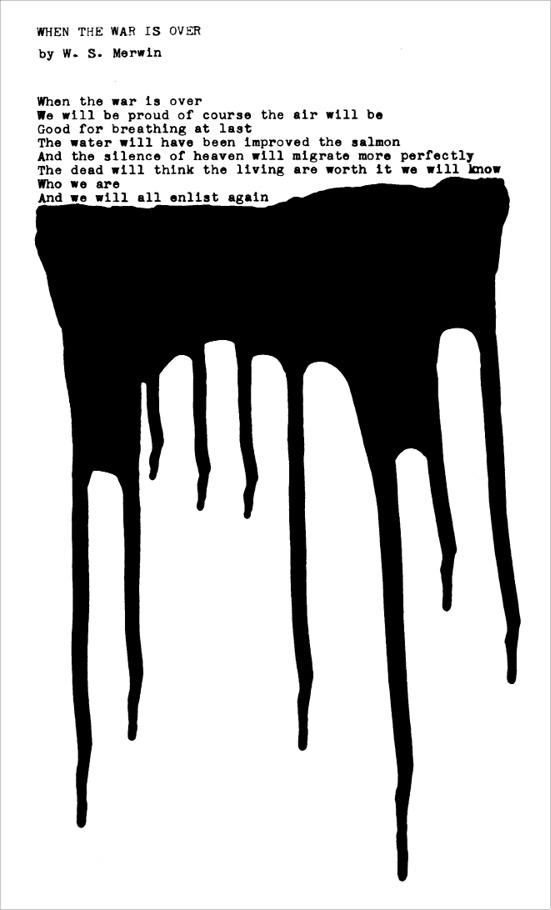W. S. MERWIN
W. S. (William Stanley) Merwin (b. 1927) has had a distinguished career as a poet, winning the Yale Younger Poets prize, the Pulitzer Prize (twice), the National Book Award, and the Tanning Prize, and becoming the poet laureate of the United States in 2010. He grew up in Scranton, attended Princeton, and has lived in Spain, London, Boston, and New York; since the 1970s he has made his home on a former pineapple plantation in Hawaii, and has gradually restored its native flora.
Merwin’s stand on war is straightforward in life and complex in his poetry. When he won the Pulitzer in 1971, he donated his prize money to the draft-resistance movement and set out his objections to the Vietnam War in the New York Review of Books. (W. H. Auden, who had awarded him the Yale prize, took exception to what he regarded as Merwin’s wrongheaded politicization of the Pulitzer.) Few of his Vietnam-era poems are transparently oppositional, however, and even “When the War Is Over”—first collected in The Lice (1967)—is too ambiguous on the page to support any political program. In the brilliant and explicit broadside version reproduced here, the poem is much less ambiguous; the blood dripping from the bottom line of the text provides a vivid and powerfully negative image of the war the poem refers to.
